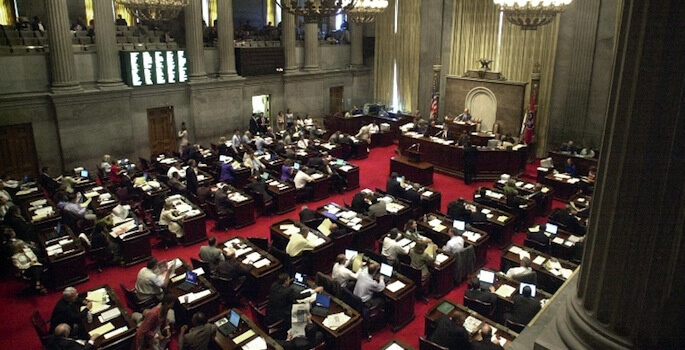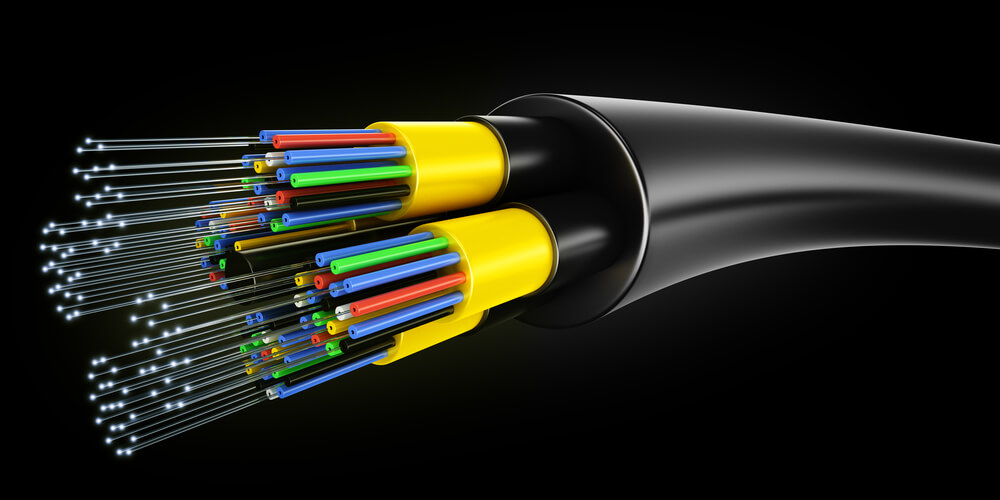In most parts of the country, choices for broadband internet is pretty limited. Typically consumers have the local cable company (usually Charter or Comcast), AT&T U-verse, or one of the slower dish networks. Occasionally you can happen across a city that has its own broadband service, and that is the case in Chattanooga, Tennessee.
Chattanooga has its own fiber optic infrastructure and the company that provides service through the fiber, EPB, offers 100 Mbps, 1Gbps, and 10Gbps plans for $58, $70, and $300 respectively. As a comparison, Comcast Xfinity offers customers 10-250 Mbps plans in most areas for rates starting at $30 and going as high as $90. Comcast's 100 Mbps service is about the same price as EPB's, but for the $70 you would pay for Chattanooga's one gig line, you could only get 200 Mbps from Xfinity.
So, Chattanooga has very fast broadband at competitive prices, but according to Motherboard, the rural areas on the outskirts are stuck with satellite, dial-up, or no internet service at all. Chattanooga was prepared to rectify this situation by expanding and building its fiber optic lines into outlying areas.
Chattanooga's EPB is government owned, but the company is fully self-sufficient. It was willing to bring high-speed internet to the neighboring countryside at no cost to the taxpayer. However, the Tennessee legislature passed a law a few years ago that makes it illegal for EPB to expand into the surrounding areas. The telecom industries lobbied for the law, and Chattanooga spent years trying to get it overturned.

Many attempts were made to get the law repealed, including petitioning the FCC before Tennessee lawmakers finally introduced a bill that would allow EPB to expand. Rural Chattanooga residents were finally going to get decent internet coverage.
However, in a move that Senator Janice Bowling describes as "crony capitalism," the legislators turned down the bill and enacted the "Tennessee Broadband Accessibility Act of 2017" instead. The TBAA will give $45 million in grants and tax breaks to companies like Comcast and AT&T to build inferior cable infrastructure or even worse, DSL to rural areas.
To put it another way: Chattanooga taxpayers will first pay $45 million over the next three years to large corporations that will then turn around and charge them for inferior internet services, as opposed to getting faster internet from EPB for about the same subscription price, but without having to pay to build the infrastructure.
"Tennessee will literally be paying AT&T to provide a service 1000 times slower than what Chattanooga could provide without subsidies," said Christopher Mitchell of the Community Broadband Networks Initiative at the Institute for Local Self-Reliance.
Think about how many internet providers that you have in your area. Do you think your lack of options is by accident?
Motherboard reports that the Tennessee legislature "has repeatedly bent over backwards for large ISPs."
While this may seem to be a localized problem for Chattanooga, it can be applied across the country. Think about how many internet providers that you have in your area. Do you think your lack of options is by accident?
As far as Senator Bowling is concerned, "What we have right now is not the free market, it's regulations protecting giant corporations, which is the exact definition of crony capitalism."
Internet providers have long held customers between a rock and a hard place. Most of the time they overcharge for unreliable service with bloated bundles and poor customer service. They can get away with this not only because they have limited competition, but because lawmakers have their backs with restrictive regulatory demands.
By all appearances, it will get worse before it gets better. More and more people are dumping providers' internet/TV bundles for on-demand streaming services like Netflix, Amazon Prime, and the upcoming YouTube TV. Look for big broadband providers to gouge consumers to make up for the losses.
Top image by Softnetics, Body image by Vanderbilt University
